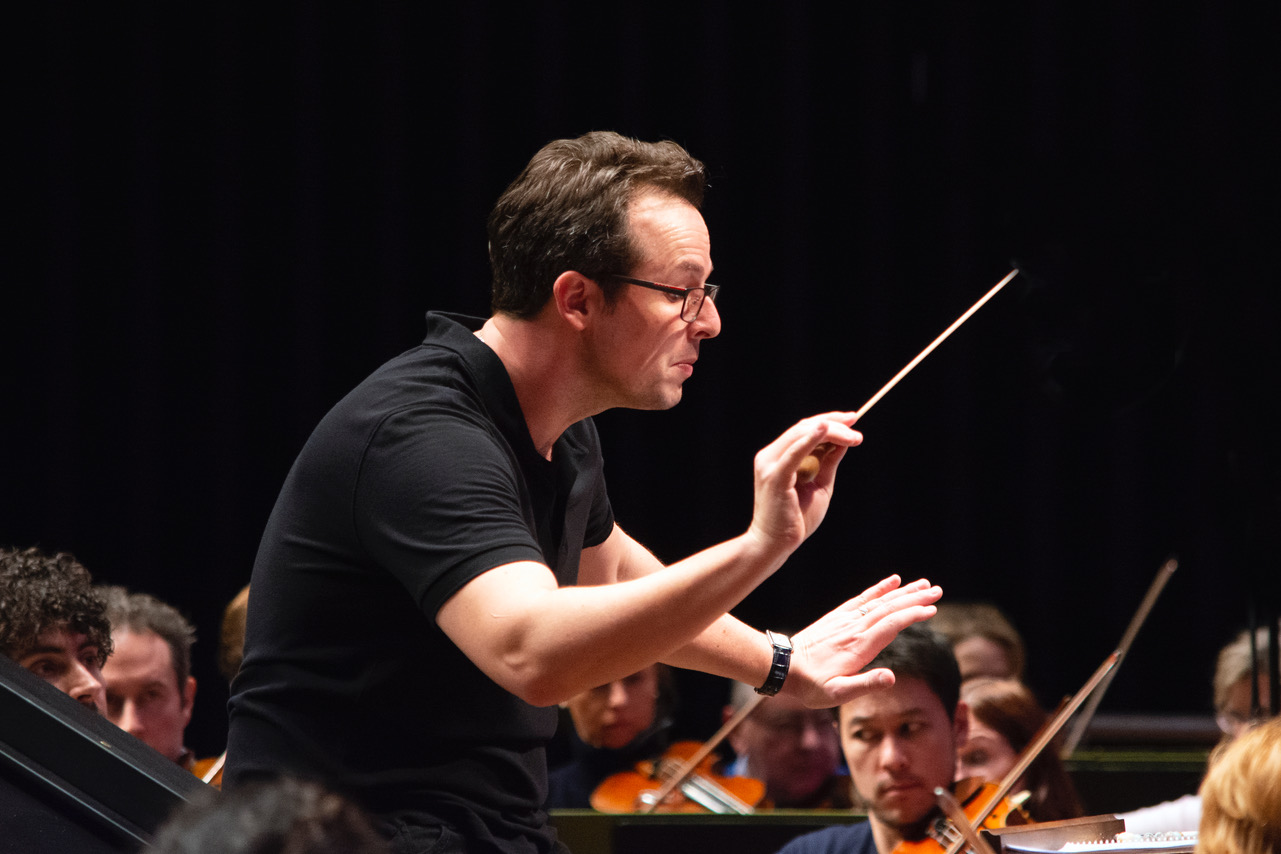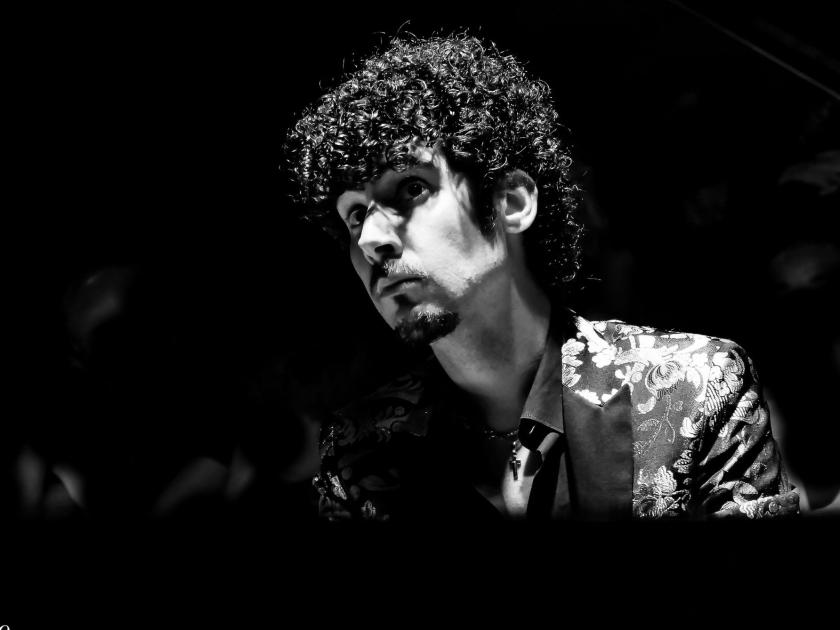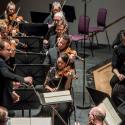The Drama and Romance of the Bournemouth Symphony Orchestra’s promotional hook for this concert signalled a heady musical mix. Appropriate for the stark contrasts of mood central to Wagner’s Tannhäuser Overture and Beethoven’s Piano Concerto No. 4, but potentially less so for Dvorák’s Symphony No. 8 that casts barely a cloud to compromise its predominantly sunny G major disposition shared with the outer movements of the Beethoven.
In the event, resolution of the conflict between profane and sacred love in Tannhäuser’s ultimate salvation, together with the framing of the concerto’s central dark night of the soul by two outer movements of contentment and joy, proved potent spurs to perhaps the most consistently exhilarating and uplifting of all Dvorák’s works.
The opening of Tannhäuser was voiced with suitably sonorous trombones and devotional string tone leading to a Venusberg bacchanal feverish with pre-Tristan vigour and sensuality. Seductive solos from clarinet and violin prepared the way for a scrupulously balanced closing triumph as the wind and brass cumulatively layered their hymnal to gradually subsume the fiendishly busy figuration of the accompanying violins. Solid bass lines and a ringing horn descant set their seal on salvation with maximum nobility and minimum bombast as a consummate précis of the sprawling Wagnerian epic.
Alongside the Violin Concerto composed at the same time, Beethoven’s Fourth PIano Concerto is arguably his most personal and intimate concertante work. Having previously performed the work several times together, soloist Federico Colli and conductor Case Scaglione (pictured below in rehearsal) had discussed whether to opt for a more Classical or Romantic approach. Energised by a probing and teasing spontaneity that readily mined both genres, they generated a confidently shared profile and personality pulling the music out of the air with an improvisational ease and relish that consistently went for the burn. Nowhere more so than in the ever-disturbingly introspective slow movement dialogue between soloist and orchestra. Is this really Orpheus taming the Furies, or the composer confronting his own demon of imminent total deafness? The growing intensity of Colli’s closing solo trills rang with a terrifying insistence suggestive of persistent tinnitus – his forlorn and lonely closing response saying to the orchestra: “Yes, I’m listening, but I can’t hear you”. Silence then became louder.  After a sparkling finale with much playful parrying between pianist and orchestra, Colli returned to question the audience as to whether an encore after Beethoven might be “sacrilegious”. Further applause encouraged a rip-roaring rendition of Fazil Say’s “Jazz Fantasy on Mozart’s Turkish Rondo” with classical redress paid due tribute in dazzling, daredevil style. It went down a storm and would have surely entertained both Mozart and Beethoven as it comprehensively ripped up the stylistic rule book.
After a sparkling finale with much playful parrying between pianist and orchestra, Colli returned to question the audience as to whether an encore after Beethoven might be “sacrilegious”. Further applause encouraged a rip-roaring rendition of Fazil Say’s “Jazz Fantasy on Mozart’s Turkish Rondo” with classical redress paid due tribute in dazzling, daredevil style. It went down a storm and would have surely entertained both Mozart and Beethoven as it comprehensively ripped up the stylistic rule book.
Dvorák’s Eighth Symphony immediately struck a deft balance between the sounds of the natural world and folk dance that bind the symphony. In the first movement, pliant lyrical phrasing and energetic rhythmic impetus were sympathetically combined with a complimentary sense of people not only more at one with each other, but also with nature – how things have changed. The following Adagio opens and closes with one of the composer’s most heartwarming melodies. The orchestra duly soared winsomely before the sun temporarily passed behind the clouds to bring something darker. Scaglione took a distinctly more troubled and turbulent Wagnerian stance for this section before re-emerging into the light, allowing the subdued recap of the opening melody to sound even more intimate and consoling than usual against its backdrop of distant trumpet retreat.
A similar distinction was made between the two statements of the glorious waltz melody in the third movement – gloriously open-air first time, but affectionately poignant and more wistful to close. With no pause before the finale, the opening trumpet reveille was a wake-up call with no snooze button. That said, the composer’s stop-start tempo changes don’t facilitate continuity in this movement. The last slower section before the rush for the finishing post is very hard to bring off without the music sounding beached. Anticipation has to carry the day as it did here, and the coda rollicked home with brazen abandon and finality, bringing down the curtain on three vividly contrasted performances that all contributed significantly to the essence of spontaneity caught on the wing in inspirational live performances.
- Concert available online until 10 March (allegedly, though try finding it here)
- More classical reviews on theartsdesk














Add comment